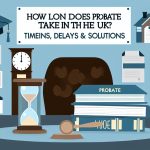Understanding Probate: What Every UK Property Owner Needs to Know
Table of Contents
- Understanding Probate: What Every UK Property Owner Needs to Know
- Step-by-Step Guide to Applying for Probate
- Common Probate Mistakes That Could Cost You Your Property
- Tax Implications During Probate and How to Minimize Them
- Debunking Myths About Probate and Property Rights in the UK
- How Probate Interacts with Residential Care Funding: What You Must Know
- Future Trends in UK Probate Law and Property Inheritance
- Choosing the Right Professional Help for Your Probate Needs
Introduction
This comprehensive guide breaks down the probate process in the UK into clear, manageable steps specifically for property owners. Learn how to navigate probate efficiently to protect your assets from excessive taxation and residential care funding demands, armed with data-driven insights.
Understanding Probate: What Every UK Property Owner Needs to Know
Step-by-Step Guide to Applying for Probate
Applying for probate in the UK involves a series of structured steps that property owners must carefully follow to ensure legal transfer of assets. Below is a detailed walkthrough of the process, highlighting essential documentation and typical requirements.
Register the Death and Obtain Death CertificateRegister the death at the local Registry Office to obtain the death certificate. Multiple copies are advisable for use with various institutions.
Assess and Value the EstateCompile a comprehensive valuation of the estate, inclusive of a professional property valuation, mortgage details, and title deeds. Accurate valuation is critical for taxation and probate applications.
Complete Inheritance Tax (IHT) FormsSubmit form IHT400 or the equivalent, ensuring arrangements for any due taxes are made. A waiting period of 20 working days at HMRC follows submission.
Prepare and Submit the Probate ApplicationComplete form PA4P or PA4A to submit along with the will, death certificate, IHT forms, and estate valuation details. Applications are submitted via the government’s online service or by post.
Pay the Probate FeeA fee of £215 applies if the estate’s value exceeds £5,000. Estates under this threshold are exempt from fees.
Wait for the Grant of ProbateProcessing typically takes about 6 to 16 weeks, after which executors can transfer property ownership, pay debts, and distribute assets.
Key Documentation Required
- Death certificate
- Original will and copies (if applicable)
- Completed inheritance tax forms
- Probate application form
- Estate valuation report
- Identification documents of the applicant
Timelines for Property Owners
- Registration of death: Within a week after death
- Estate valuation and completing IHT forms: Typically 1–3 weeks
- HMRC’s 20 working day waiting period after IHT form submission
- Grant of probate issuance: Around 6 to 16 weeks post-application
Probate is essential for title deed transfer and mortgage management, demanding accurate valuation and documentation to avoid delays.
Step-by-Step Guide to Applying for Probate
Common Probate Mistakes That Could Cost You Your Property
Probate errors can jeopardise your inheritance or expose you to legal and financial risks. Recognising and avoiding these common pitfalls is vital in property asset protection.
Documentation and Form Errors
- Submitting Incomplete or Incorrect Forms: Ensure all paperwork, including the original will and death certificate, is complete and error-free.
- Insufficient Supporting Evidence: Assemble comprehensive documentation early to prevent processing delays.
Valuation and Tax Issues
- Inaccurate Property Valuation: Hire professional valuers for precise assessments to avoid tax calculation errors.
- Failing to Identify All Assets: Ensure all assets, including subsidiary properties, are accounted for to prevent legal issues.
- Incorrect Tax Filing: Consult a tax expert for accurate declarations and to maximise exemptions.
Will and Beneficiary Challenges
- Using an Invalid or Outdated Will: Regularly review and properly execute wills to ensure validity.
- Overlooking Beneficiaries: Employ tracing services and seek legal advice to confirm all beneficiaries are identified.
- Misinterpreting Will Instructions: Seek mediation or legal help to resolve ambiguities early.
Execution Delays and Liability
- Premature Distribution of Property: Await formal tax clearance before distributing assets to avoid personal liability.
- Mixing Estate and Personal Finances: Keep estate finances separate to maintain clear records and accountability.
Risks of DIY Probate for Property Owners
Complex legal and tax considerations in property estates warrant professional legal or financial advice to avoid expensive errors. Engage probate solicitors or accountants to mitigate risks and ensure compliance.
Practical Steps to Avoid Probate Pitfalls
- Ensure accurate property market valuations by qualified valuers.
- Regularly review and update wills to reflect current assets.
- Engage UK property probate experts for professional guidance.
- Maintain transparent records of estate administration.
- Hold estate funds in dedicated accounts to avoid commingling.
Avoiding these common mistakes can safeguard estates from unnecessary setbacks, financial penalties, and disputes, ensuring smooth property transfer to beneficiaries.
Tax Implications During Probate and How to Minimize Them
Tax Implications During Probate in the UK
Various taxes can significantly impact an estate during UK probate. Understanding these taxes and applying strategies to mitigate them is critical.
Key Taxes Affecting Property Owners During Probate
- Inheritance Tax (IHT): At 40% above the £325,000 nil-rate band. Executor responsibility includes filing IHT returns and paying taxes pre-distribution.
- Capital Gains Tax (CGT): Applies if the property is sold at a profit. Exemptions exist if it becomes the main residence. Smaller gains may leverage the CGT allowance.
- Income Tax: Rental income generated by the estate during or after probate must be declared and taxed at the beneficiary’s rate.
| Tax Type | When It Applies | Key Rules/Thresholds | Rate/Allowance | Who Pays/Reports |
| Inheritance Tax (IHT) | On death, before probate can be granted | Estate value above £325,000 (Nil Rate Band); up to £500,000 if home left to children; exemptions for spouse/charity | 40% on amount above threshold (36% if 10%+ left to charity) | Executor/Personal Representative |
| Income Tax (Estate) | On income the estate receives during administration | No personal allowances; from April 2024, first £500 of estate income per year is tax-free | 20% on most income; 8.75% on dividends; £500 de minimis | Executor/Personal Representative |
| Capital Gains Tax (CGT) | On gains from assets sold by estate during probate | Taxed on increase in value since date of death; annual exemption (£3,000 for 2025/26) for up to 2 years after death | 24% on residential property; 20% on other gains; £3,000 annual exemption | Executor/Personal Representative |
| Probate Fees | When applying for probate | Fee applies if estate is £5,000 or more | £300 (England & Wales, as of 2020) | Executor/Applicant |
| Reporting Requirements | For all relevant taxes | Must report to HMRC; SA900 Trust and Estate tax return if estate is complex | See HMRC rules for thresholds | Executor/Personal Representative |
Effective Tax-Saving Strategies During Probate
- Maximise IHT Exemptions
- Transfers to spouses/civil partners are IHT-exempt.
- Charitable donations and certain trusts reduce taxable value.
- Optimise Capital Gains Tax
- Immediate sale after inheritance can limit CGT.
- Prompt Administrative Action
- Quick property ownership transfer avoids unnecessary taxes.
Additional Considerations
Ensure detailed records and seek advice, especially with trusts or complex structures, to manage probate taxes effectively and preserve estate value.
Debunking Myths About Probate and Property Rights in the UK
Debunking Popular Myths About Probate and Property Rights in the UK
Misunderstandings regarding probate often lead to undue stress and financial losses. Here, we unravel common UK probate myths with evidence-based insights.
Probate Is Not Always Required
Probate may not be necessary for jointly owned assets, like bank accounts or properties shared with a spouse, expediting access to funds in smaller estates.
Spouses Do Not Automatically Inherit Everything
English intestacy laws limit spousal inheritance to a set statutory amount, with remaining assets divided amongst blood relatives, disproving the myth of automatic total inheritance.
Joint Ownership Doesn’t Eliminate Tax or Probate Complexities
While the property avoids probate, joint ownership does not prevent all tax charges. Cohabiting couples especially face potential tax liabilities.
Probate Can Take Months, Not Days, to Complete
Expect months for probate completion, influenced by estate complexity, asset valuation needs, and potential disputes.
Unmarried Partners Do Not Receive Spousal Inheritance Tax Benefits
Unmarried partners are sans many spousal privileges, emphasizing the need for proper estate planning and will drafting to protect assets.
Practical Steps:
- Engage a probate specialist solicitor.
- Maintain valid, up-to-date wills.
- Carefully consider joint ownership structures and documentations.
- Explore estate and care funding planning to mitigate future risks.
How Probate Interacts with Residential Care Funding: What You Must Know
Understanding how probate interacts with residential care funding and property ownership is crucial for asset protection amidst potential care needs.
Capital assets are assessed at a threshold of £23,250 to determine funding responsibility for care. Exceeding this often requires private financing, with council reimbursement sought from the estate during probate, affecting distribution.
Property exemptions exist, like when a direct descendant inhabits the home, reducing care cost burdens. Caution in asset transfers is critical to avoid unlawful deprivation considerations.
- Plan early for financial and legal advice.
- Consult experts to navigate asset protection without asset deprivation consequences.
Understanding care funding implications enables strategic estate planning, protecting assets and ensuring familial security.
Future Trends in UK Probate Law and Property Inheritance
UK probate law is amid significant reform scheduled for 2025 to 2030. These changes aim to modernise legal frameworks regarding property inheritance and taxation.
Modernisation of Wills and Probate Formalities
- Electronic Wills: Facilitates digital execution of wills under secure conditions.
- Lower Will-making Age: Reduced to 16, allowing younger inheritors to plan early.
- Abolition of Automatic Revocation on Marriage: Preserves wills unless specifically modified post-marriage.
Inheritance Tax (IHT) Reforms
- Residence-based Taxation: Affects long-term UK residents owning global assets.
- Trust Taxation Adjustments: Requires review for international property holdings.
Practical Steps for Property Owners
- Digitalise and update wills.
- Assess residency and trust status for tax implications.
- Plan for IHT policy changes, especially if holding agricultural or business property.
These updates necessitate vigilance and proactive estate planning to mitigate unintended tax liabilities and conflicts during probate.
Choosing the Right Professional Help for Your Probate Needs
Choosing the Right Professional Help for Your Probate Needs
Selecting appropriate professional support is vital for efficient probate navigation, cost control, and secure outcomes.
Solicitors
Benefits:
- Expertise for Complex Cases: Provide precise legal advice for complicated estates.
- Personalised Assistance: Suitable for sensitive, intricate cases needing thorough explanation.
Online Probate Services
Benefits:
- Cost-Effective: Fixed, transparent fees for uncomplicated estates.
- Convenience and Speed: Efficient, often remote processing for grants.
Financial Advisors
Benefits:
- Tax and Estate Planning Expertise: Optimise inheritance tax through strategic planning.
- Asset Coordination: Aid in valuing and organising complex estates.
Summary for Property Owners
- Simple, undisputed estates: Use cost-effective online probate services.
- Complex estates with disputes: Solicitors offer indispensable expertise.
- Maximising estate value: Financial advisors assist in tax optimisation.
Selecting wisely based on your estate’s requirements ensures efficient asset protection through probate.
Sources
- GOV.UK – Applying for Probate
- Age Space – Applying for Probate: A Practical Guide
- OC Elder Law – Grant of Probate Process 2024
- Friend & Grant – The Top 10 Most Common Mistakes in UK Probate Applications
- Vaneaton Solicitors – Common Probate Mistakes and How to Avoid Them
- O’Donnell Solicitors – 5 Common Mistakes Made During Probate
- GOV.UK – Tax on property, money and shares you inherit
- HomeOwners Alliance – Inheriting a property
- The True Cost of Probate in the UK: Fees, Taxes, and Hidden Charges – 9 January 2026
- Do You Always Need Probate? When You Can (and Can’t) Avoid It – 6 January 2026
- How Long Does Probate Take in the UK? Timelines, Delays & Solutions – 3 January 2026






